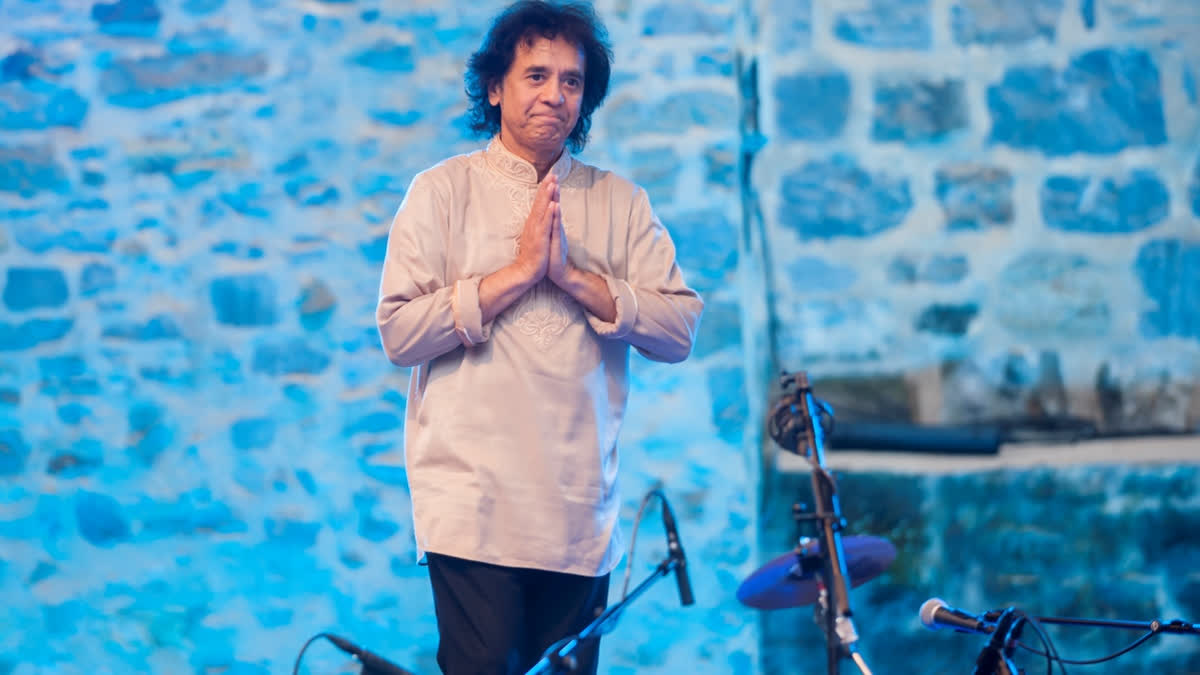Ustad Zakir Hussain, who passed away on Monday morning in San Francisco, leaves behind a legacy that redefined Indian classical music on the global stage. While the maestro achieved immense fame and accolades, including four Grammy Awards, Padma Shri, Padma Bhushan, and Padma Vibhushan, in the early days of his career, he did face humiliation.
In his last interview with us during a visit to India, Hussain reminisced about one such moment. "I went to perform, but they asked me to sit in a corner of the kitchen until the audience was ready for the mehfil. I was playing the tabla, but the audience was busy with their own stuff. No one paid attention. Now, that same place is where I am frequently invited for dinners and social gatherings. That’s a big change," he had shared.
Hussain also spoke about how musicians have paved the way for Indian classical music globally. "Gone are the days when musicians were seen as socially incompatible. Today, musicians have platforms that allow them not just to survive but also thrive. This new generation of artists deserves the recognition they are receiving," he expressed.
A longtime resident of San Francisco, Hussain was recognised with numerous awards throughout his illustrious career. He was honored with the Padma Shri in 1988, the Padma Bhushan in 2002, and the Padma Vibhushan in 2023 by the Government of India. In 2016, he was invited by President Barack Obama to perform at the All-Star Global Concert on International Jazz Day at the White House. Despite decades of success, Hussain remained as energetic and committed as a young artist. "I love what I do. I am at utmost peace where I am, and that’s what keeps me going," he had said.
A strong advocate of fusion music, Hussain believed it was essential for bridging the gap between diverse musical styles. "The world is becoming smaller, and the window to exchange music is wide open. If we want the West to understand our music, we must take it to them. Similarly, we should bring their music into ours. It’s essential," he had said.
While some purists feared that fusion music could dilute the essence of classical traditions, Hussain disagreed. "Our culture and classical music forms are like our ventilation—they let us breathe. Indian music is respected everywhere. It’s a premium form of art, and musicians today have the confidence to call themselves ‘The One,’" he had said.
Through his life and music, Zakir Hussain not only elevated the status of the tabla but also inspired countless musicians to embrace their heritage while exploring new horizons.
Read More:



